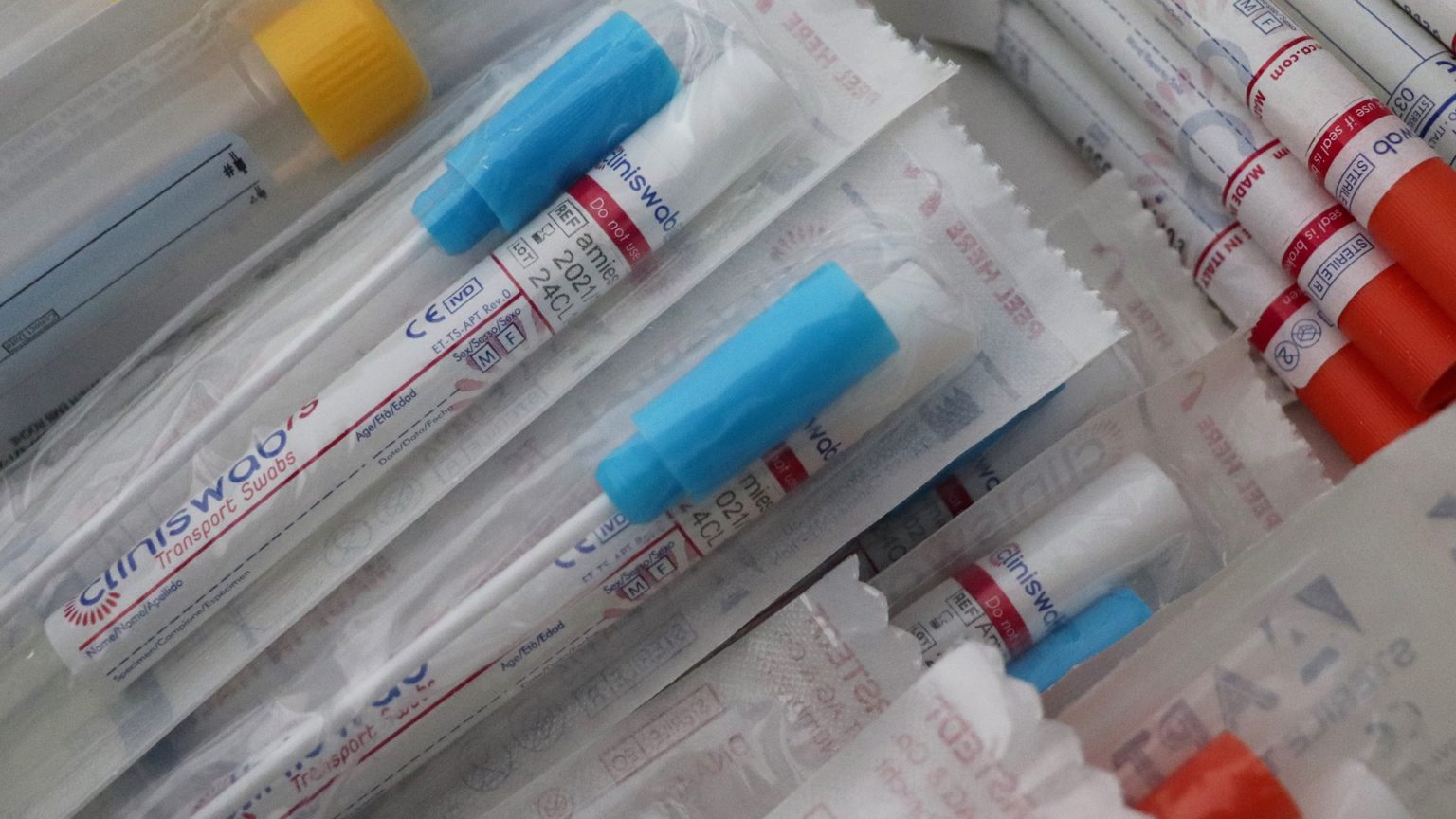DHS Announces Two Testing Studies for COVID in Wisconsin
June 17, 2020

Medical testing swabs. (Courtesy: Vesna Harni)
The Department of Health Services announced two studies to evaluate the spread of COVID-19 in Wisconsin, using antibody and wastewater testing.
Public health experts said at a Wednesday media briefing that the studies provide another tool for them to provide recommendations on how best to prevent the spread of the disease.
“Diagnostic testing only shows us the tip of the iceberg,” said state epidemiologist Dr. Ryan Westergaard, referring to the type of test a patient would receive at a doctor’s office. “If we want to more fully understand the spread of COVID-19 epidemic in the past, we have to use a variety of tools and collect different kinds of information to look at the epidemic from a number of different perspectives.”
The antibody survey will employ a test that determines whether a person has developed resistance from catching the virus in the past and will be led by UW-Madison’s Survey of the Health of Wisconsin (SHOW). Health experts want to use the survey to test a cross sectional sample of Wisconsinites, and will use a population similar to previous SHOW studies.
The wastewater study would test specific population centers at wastewater treatment facilities to see if the coronavirus is present in those communities. Dr. Jon Meiman, chief medical officer of the Bureau of Environmental and Occupational Health, said the practice had been used with Hepatitis A and norovirus outbreaks and had shown some promise in detecting COVID-19 outbreaks in Europe.
“This type of research is essential to our statewide efforts and until there is a vaccine,” said DHS Secretary-designee Andrea Palm in a statement. “We must do everything we can to protect our communities and ensure that we are safely reopening the state.”
This comes as universities around Wisconsin release plans for opening campuses for the fall. University of Wisconsin campuses in Madison and Milwaukee committed this week to holding some in-person classes in the fall.
Westergaard said that as rates of COVID-19 infection continue to remain low, work can still be done to lower the prevalence of the disease before students return to universities and K-12 schools in the fall.
“If we can communicate and coalesce around the idea that adopting these infection prevention strategies, like wearing masks in public and maintaining physical distancing in public, I think there’s a lot of good that can be done,” Westergaard said. “It’s not a foregone conclusion that we are going to have a wave [but] there’s a lot we can do to prevent new cases going into the late summer and fall.”
 Passport
Passport











Follow Us